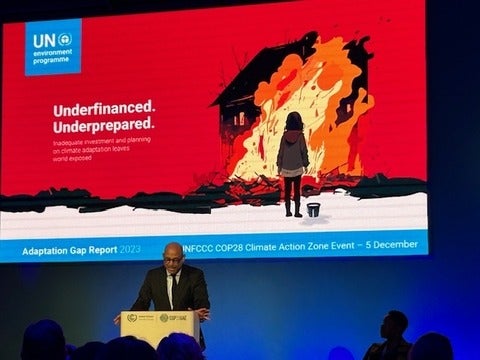Climate Institute supports a roadmap for innovative and equity-informed climate action
Over the past year, the Waterloo Climate Institute has collaborated closely with Southwestern Public Health (SWPH), which serves the regions of Oxford County, Elgin County and the City of St. Thomas, to identify critical climate-related health risks in the region. Using the latest climate change projections and focusing on the most vulnerable populations, the resulting report lays out recommendations to enhance preparedness and resilience in tackling these challenges in the region.








